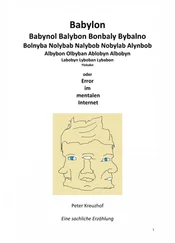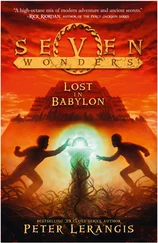The old man promptly pulls out a piece of paper. “Here’s the bill, sir.”
Rácz looks at the bill. “Well,” he says, “it’s not cheap. But you don’t have a dinner jacket made every day, to hell with it.” He unlocks his desk and takes some money from a drawer. “Here you are,” he tells the tailor. He throws the money on the desk. “The change is for your trouble,” he adds.
The old man makes his exit from the Rácz’s suite, bowing deeply.
A waiter enters, pushing a serving trolley with the stoker’s breakfast. He stops and waits. Rácz throws him a coin. Then he looks at Ďula.
He decides: let’s keep the list of things to do today short. Today Rácz is accompanying his fiancée, as he calls her, to the Opera. Then they’ll go to the Puszta , a Hungarian restaurant, for a late supper. “There’s no need to be stuck here in the hotel forever,” he says with mock sagacity. He sits down to breakfast.
Ďula puts a finger to his mouth and tiptoes to the door. He opens it quickly. The corridor is empty. From round the corner comes the sound of a waiter’s hurried footsteps.
“What is it,” asks Rácz, shelling an egg.
“Nothing, boss,” says Ďula. “I’ve been having this strange feeling lately.”
“Screw feelings,” the stoker advises. “Feelings are for old women.”
“The cleaners were whispering about something on the stairs this morning, boss,” Ďula reports.
Rácz eats. “Let them whisper,” he says with a full mouth.
Ďula sits down at the table. When Ďula walked by, the cleaners shut up. But Ďula put pressure on them. There is a new guest in the hotel, an African, a black man. The cleaners find it strange that when they clean his room, everything is black; there are black fingerprints everywhere. Apparently even his pyjamas and the bed linen was black. The cleaners found it strange, and so does Ďula.
Rácz stuffs a piece of bread and jam into his mouth and chases it down with a mug of tea. “So what?” he says. “If he’s black, he’ll make everything black. Rácz is a businessman. He doesn’t care who he deals with: black or white, they’re all the same to him. The cleaners are paid to clean,” says Rácz.
Ďula dares to persist. “If someone’s black, it doesn’t mean the colour comes off. A black man is black. The colour doesn’t run.”
Rácz finishes the hard-boiled egg and another piece of bread. He frowns. Ďula has to wait a moment until he’s swallowed. “What do you think, Ďula?” the stoker addresses his driver. “Why do the blacks in Africa wear grass skirts? Why don’t they have furniture? Why no bed linen? Can you answer that one?” Rácz pauses. He reaches into the basket and pulls another slice of bread from under the napkin. Ďula has no idea. He is silent. Rácz smiles with a feeling of superiority. “Why? So they don’t get everything black.” Rácz touches his forehead. “Couldn’t that be the reason,” he says, rebuking Ďula.
Ďula is embarrassed.
“Don’t take it to heart, Ďula!” Rácz will have a look at the black man. You never know, that’s for sure. It pays to be careful, but today he hasn’t got time. He has to go to the Opera. Then he’s having supper. There are a lot of other duties. Today Rácz wants to spend the whole day having fun.
When Ďula leaves to see to his duties, Rácz takes off his dinner jacket and puts on his red track suit. He turns the television on and tunes into Eurosport. For a while he watches the billiards championship. He gets quite engrossed. But before long somebody knocks at the door. “Enter!” Rácz shouts.
It’s the restaurant manager. He enters, bowing fearfully. “Your secretary told me that you wished to speak to me, sir.”
“Yes,” says the stoker. “My secretary.” He likes that title. Secretary. Rácz puts on a kindly expression. “So, how are things?” he asks the restaurant manager. “You seem to have survived New Year’s Eve,” he says. “I hope Dr. Renceš did, too. What excuse did you invent for him?” Rácz is interested.
“We told him that the lounge was flooded and out of use,” says the restaurant manager.
“And then what? Did he have any objections? Was he unhappy about anything?” Rácz wondered.
“Not really.” The restaurant manager shakes his head.
Rácz gets up and approaches the restaurant manager. “There you go,” he says. “Things are never as bad as they seem.” He moves to the window and watches the ice floes passing down the river. He put his hands behind his back. He is silent for a long time. As if he’s forgotten about the restaurant manager. “That’s not the reason I asked you to come,” he says after a while, when the manager is beginning to think that they’ll be standing there like that until lunch. “It’s not about that,” adds Rácz, almost to himself. He measures the room in long, energetic strides. He suddenly stops and jabs his index finger into the air in the direction of the restaurant manager. “What did you study?” he asks.
“Hotel management,” says the restaurant manager.
“Why?” Rácz shakes his head and starts to walk up and down. Each time he stops by the window and knocks on the frame with his knuckles. “So you’ve got a doctorate,” he states.
“No,” says the restaurant manager, “I’m an engineer.”
“Oh yes,” says Rácz, as if he’s remembered something. “An engineer.” So it would not be too far from truth if he said that the restaurant manager knows all about those little trifles.
The restaurant manager throws up his hands. He’s the restaurant manager of the Ambassador. He doesn’t know what the boss is talking about.
“Oh, things like how to go upstairs with a lady,” says the stoker, “how to go downstairs with a lady, what to do in the cloakroom; how to behave at table in a restaurant, how to use a knife and fork, how to say goodbye. That kind of little trifles.” Rácz wishes to be taught all these things by the restaurant manager before lunch, if possible. After lunch, Rácz has things to attend to.
The restaurant manager is in a cold sweat. He’ll be glad to teach the boss all these things, but he fears that not even a month will suffice.
“What do you mean by that?” Rácz asks and his face congeals into a stone mask.
The restaurant manager takes a deep breath. He has no doubts about the boss’s abilities, absolutely none. But he would suggest that the rules of etiquette are a complex science. Take, for example, just table manners. Asking a lady for a dance, polite conversation…
Rácz shakes his head. “No dancing. No conservation. Some other time, perhaps. This evening, there will be going upstairs, sitting in a box, going downstairs, entering a restaurant and eating.” Rácz is no idiot. He learns quickly. He’s got a good memory. While the restaurant manager has been babbling about complex this and that, ten minutes’ teaching time have been wasted, which could have been used to learn how to do it. “Here’s a piece of paper and a pencil. Rácz is ready. No more talking!”
The stoker is a good pupil. He has a good memory. He is diligent. He writes everything down. Before evening Rácz will revise it a few times, he tells the restaurant manager. The latter explains everything: when to clap, when not to. Then comes lunch. Rácz phones downstairs and asks for the menu. He wants to choose. He will eat upstairs. He orders a meal for the restaurant manager, too. He wants him to teach Rácz how to use a knife and fork, how to pour wine and taste it and how to use a fish knife and dessert spoon. And to teach him how to summon the waiter; not by losing his temper and banging the table, or pulling the tablecloth and smashing all the china if the waiter is a bit slow. Not to make a toast with an apéritif, not to throw bones under the table, or drink from the bottle. The manager talks and talks. Rácz listens. He holds his knife and fork properly. He chews with his mouth closed. He eats without chomping sounds. He puts small portions of food into his mouth. His elbows are kept pressed to his sides. He knows this is the only way to win over Lenka. She is too young to be overwhelmed by Rácz’s money and potential alone. She notices little trifles like these. But Rácz will master this, too. This evening Rácz will eat in the Puszta restaurant like a count.
Читать дальше












